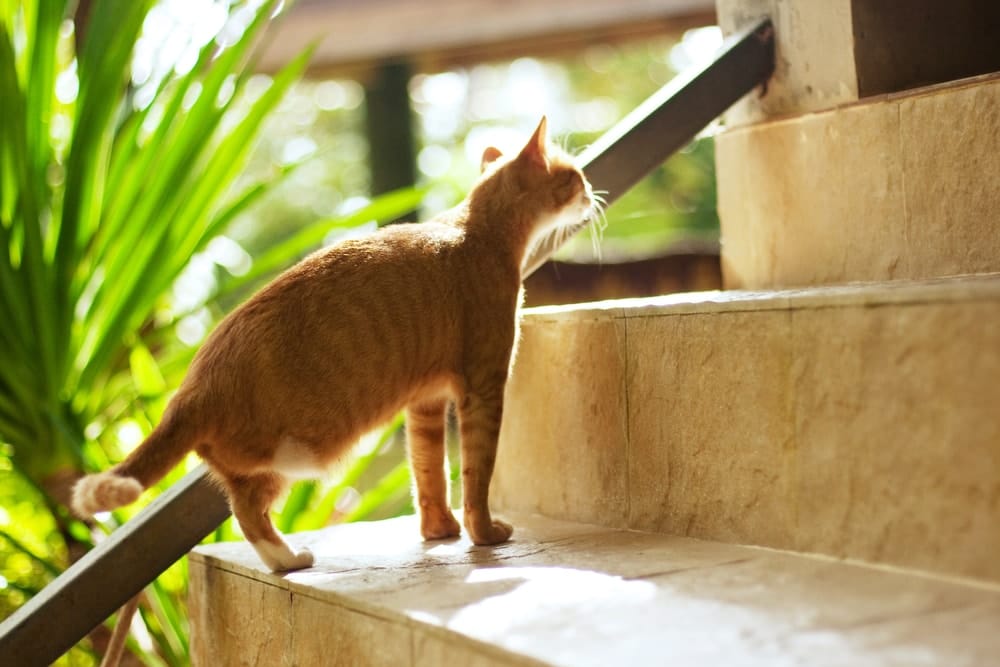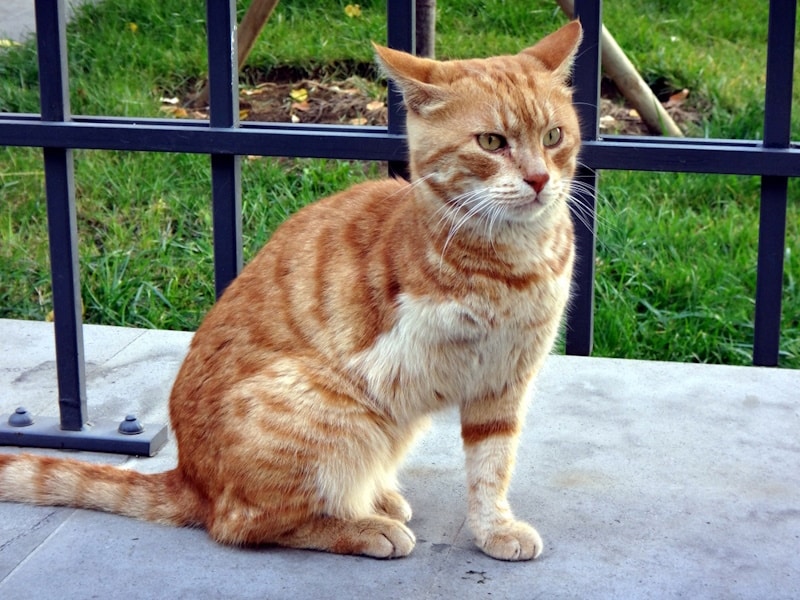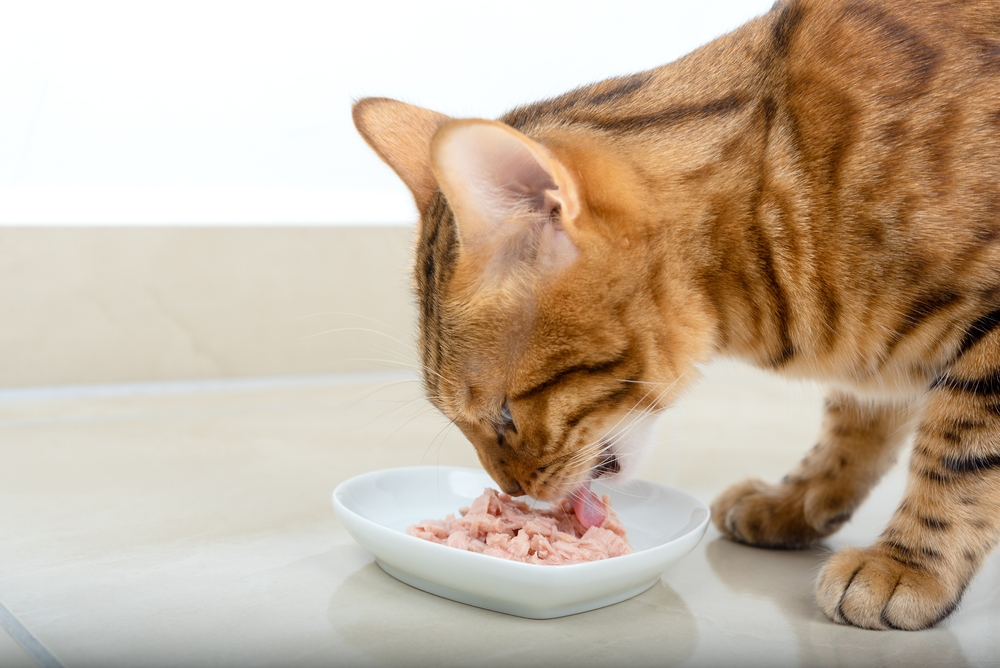Click to Skip Ahead
Tripawd, tripod, trilimb—whatever you call them, a three-legged cat is just a different kind of pet. They might need a bit of help to live their best lives, but these animals make as wonderful companions as any full-limbed pet.
Whether you have a three-legged wonder or are looking to adopt one, here’s what you can expect in terms of care and how you can help promote their health and well-being.
How to Care For Your Three-Legged Cat
1. Keep Your Kitty Fit
Every cat parent knows that it is mandatory to keep their fur baby at a healthy weight to avoid future health problems. However, for a tripod cat, maintaining a slim figure becomes even more important because gaining even a single extra pound can have serious consequences on their mobility.
Furthermore, vets emphasize the importance of a three-legged animal to maintain adequate muscle mass. It’s not just about looks: Strong muscles help support the joints in your cat’s back and other limbs that may be under extra strain.
That said, your tripod cat may tire more quickly than their four-legged peers, hence the importance of letting them rest between exercise and playtime sessions.
2. Ask Your Vet About the Best Diet
Exercising your cat will help keep the pounds away, but food comes into play too. Whether your cat has recently undergone an amputation surgery or you’ve adopted them with one missing leg, their diet will likely be different from that of a four-legged cat. They may need more protein to build muscle or maybe fewer calories for a while until they’re back on their feet.
Since every three-legged cat’s situation is different, their nutritional needs will vary. This is why you need to work with your veterinarian to ensure that your cat gets a diet that will meet their specific needs based on their current situation.

3. Providing Supplements for Your Cat’s Joint Health
Although most physical problems are the same for three-legged pets, joint problems can be more significant than in a four-legged pet.
To help keep your tripod’s joints supple and healthy, your veterinarian may suggest a fish oil supplement. The omega-3 fatty acids found in fish oil may reduce the signs of osteoarthritis, though nearly all research has been done in dogs, not cats.
4. Make Your Home Tripod-Cat Friendly
Most three-legged cats can move around the house without any problems. However, you should still make a few adjustments to your home, whether to help your cat recover after surgery or simply so they feel safe and comfortable:
- Consider using runners or other non-slip surfaces in areas where your cat likes to move. This will help prevent any slips or falls that could cause further damage.
- Block access to high cabinets or similar locations. Cats don’t always land on their feet when they fall, and this is especially the case for three-legged cats.
- To make your cat’s favorite places more accessible, install ramps or other mobility aids. For example, if the windowsill is a favorite spot for your cat, place a chair nearby for easy access.
- Move furniture around or adjust perches to make them more accessible to your cat. You can get creative and find unique ways to make your home safer for your three-legged friend.
Can a Three-Legged Cat Have a Normal Life?
Yes, your tripod cat can lead a normal and happy life. A study carried out in 2010 in the United Kingdom involved 192 cats that had a leg amputated. The authors reported that 89% of cats regained “normal quality of life,” as defined by their owners.
A 2022 study that examined the medical records of 59 cats with single-limb amputations over 10 years in the United States found similar results. The results presented by the authors suggest that limb amputation in cats is generally well-tolerated. Most cat owners were satisfied with the results of the amputation for their cat and did not regret their decision.
While it’s not possible to extrapolate these results and extend them to all cats having undergone an amputation, most cats do seem to be able to lead a so-called “normal” life with limited side effects, which do not seem to have an impact on their quality of life.
Granted, good care and supervision of the cat’s recovery play a huge part in how well they thrive after surgery.

Should You Get Your Three-Legged Cat a Prosthesis?
That’s a decision that you should discuss with your vet. But generally speaking, know that most tripod cats can live a wonderful life on their three remaining limbs and don’t need a prosthesis to thrive.
How to Get Financial Support for Amputation Surgery for Your Cat
If you live in the United States or Canada and need to have your cat undergo an amputation but are having difficulty with veterinary costs, you may be able to get financial assistance through the Tripawds Amputation Surgery Assistance Program.
To help pay for this surgery, it’s currently offering $1,000 in financial assistance to two applicants per month. All grant recipients must meet program income requirements and submit necessary documentation. Here’s the link to the program details and to submit your application.
Note: The Tripawds Foundation understands that $1,000 may not cover the full cost of amputation surgery. Here’s a list of additional financial aid resources to help you get extra funding from other organizations.
Tips for Caring For Your Healthy Three-Legged Cat After Surgery
The amputation of a leg in a cat may be recommended after a serious injury or illness. Common reasons include neoplasia, traumatic injury, bone infections, and thromboembolism. Most three-legged cats do not need special veterinary care after amputation and rehabilitation. The cost of caring for a three-legged pet is generally not significant. The main challenge often comes from the pet owner, not the cat themselves.
That said, three-legged pets may face a higher risk of osteoarthritis and other joint problems as they age due to changes in posture and movement. Fortunately, there are various preventive measures and management strategies for such conditions:
- Monitor your cat’s movements after surgery, and give them short periods of freedom on non-slip surfaces, such as a carpet. For the first month after surgery, limit their movement, monitor them closely, and consider using a crate to avoid additional injury.
- To aid elimination, switch to a litter box with low sides; immediately post-op you may need to fill it with newspaper-based litter.
- Avoid letting your cat go outside, as their condition makes them more vulnerable to outdoor dangers.
- While keeping a vigilant eye on your three-legged cat, resist the urge to carry them everywhere in your arms. Your cat must learn to compensate for the missing leg, and this can only be done by building strength in the other limbs.
- Ask your vet to teach you how to do rehabilitation exercises for your cat, if needed.
Final Thoughts
Ultimately, caring for your tripod cat shouldn’t be a burden. By making just a few minor changes to your home, keeping their diet in check, ensuring that they aren’t gaining weight, and having regular veterinary checkups, three-legged cats can enjoy life just as much as their four-legged pals.
Featured Image Credit: Ted Arts, Shutterstock










